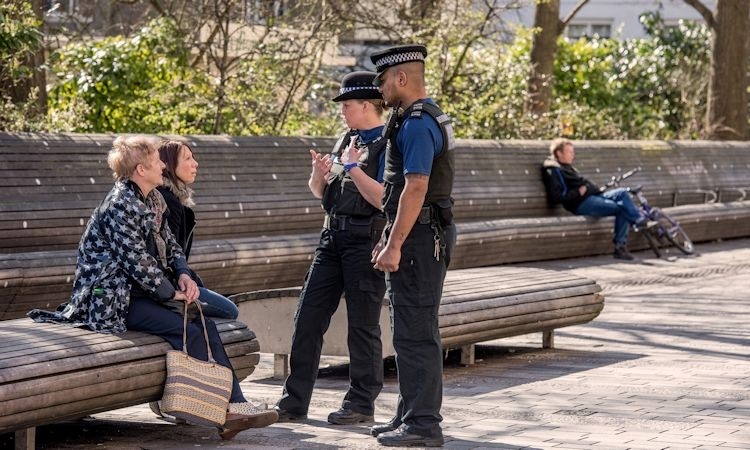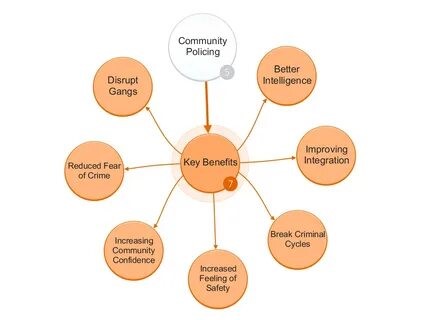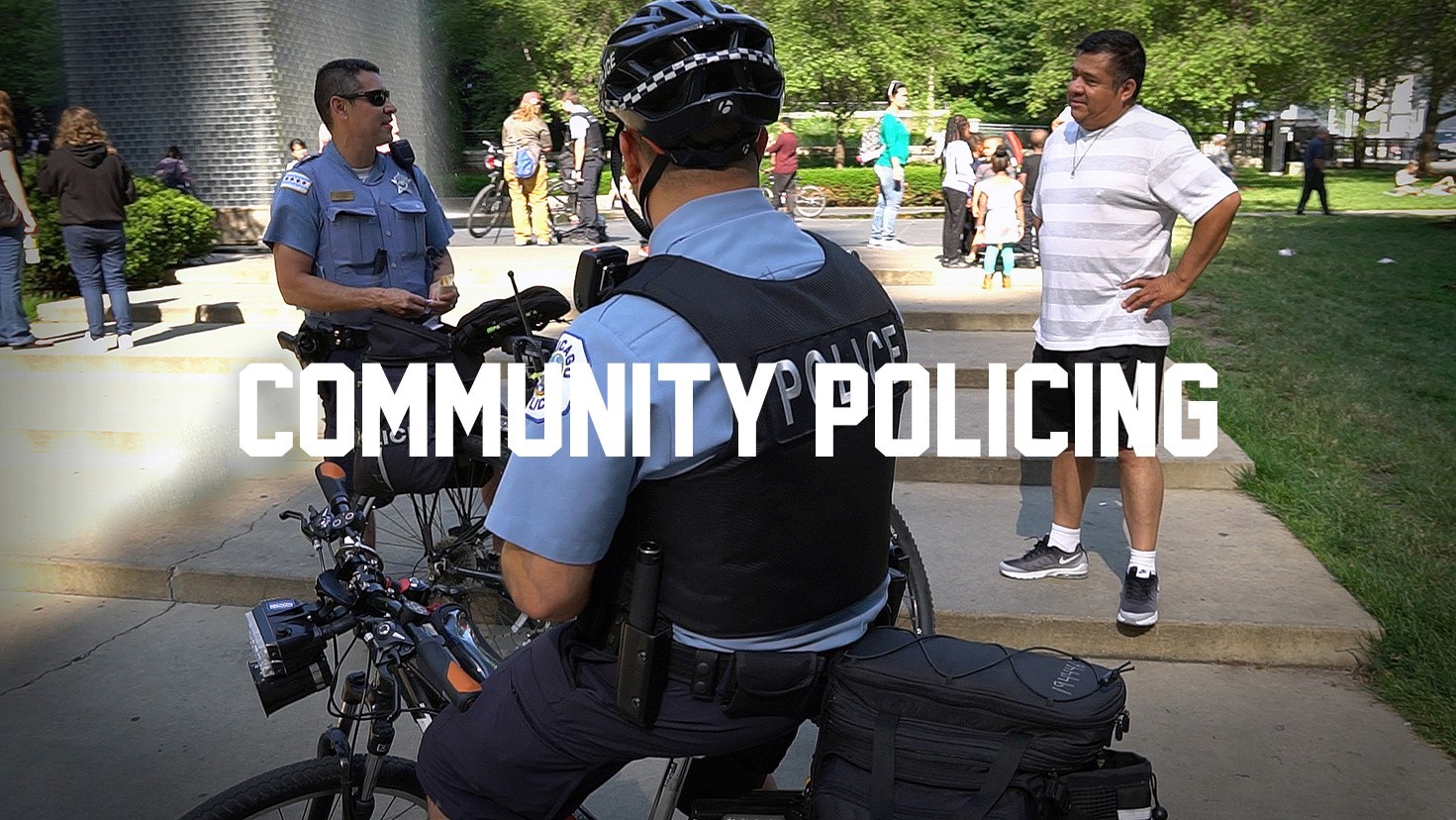Community Policing Pros and Cons
Community policing is both a philosophy and strategy for fighting crime. They utilize problem-solving techniques to identify high-crime areas and crime patterns.
Police resources focus on these worthy areas rather than the traditional practice of waiting for crimes to occur before responding.
This philosophy has been successful because it gives more power back to communities by having them work together with law enforcement. This helps to reduce the amount of crime and, in some instances, to deter crime happening in their area.
Accurately determining a community’s borders is very important for successful community policing. Community policing cannot be imposed. It occurs when the people in a specific community see its value and want to support it. Let us look at some of the pros and cons of community policing.
What Are the Pros of Community Policing?
Safer Communities
Citizens feel safer knowing there is a police presence patrolling their neighborhood. The police are not only in cars; they are on bicycles, motorcycles, and foot patrols.
Law Enforcement’s Relationship with the community
Implementing community policing requires that officers directly engage with the community rather than just responding to calls from within their patrol car.


Police officers designated to a specific community come into direct contact with residents and business owners repeatedly. This helps build trust and strengthens relationships between law enforcement and citizens.
These relationships provide intimate knowledge that allows police the best chance to control crime. Citizens and law enforcement are personally involved in the collective interest to prevent crime.
Community Policing Helps Prevents crime
One of the most important objectives is to prevent as opposed to reacting. This requires a proactive approach based on engagement and mutual respect between police and members of the community. They include residents, businesses owners, schools, houses of worship, and civic organizations.
The success of this approach is evident in lower volumes of calls from those reporting crime. As the relationship builds, citizens are more likely to report incidents of violence that might have otherwise gone unreported.
Identification
Community policing uses problem-solving approaches by responding to and correcting potential weaknesses more quickly than responding to an act after it is done. The emphasis shifts from combatting crime to crime prevention.
Long-term crime prevention relies on police involvement in all aspects of a community, no matter a jurisdiction boundary. Accurately defining a community’s borders is vital to the effectiveness of community policing.
Crime prevention creates an easier community for people to live in. Citizens prefer to be part of safe communities.
Community policing allows community officers to learn about their assigned neighborhoods.
Community PCs are personally engaged in conversations about the citizens of one particular community. The main difference between patrol officers and bobby at the beat is that of engagement within the neighborhood.


Patrol agents drive in and find suspicious activities. Community PC patrols the neighborhoods to their feet.
What Are the Cons of Community Policing?
Negative Public Perceptions to community policing
Community members may feel like it is not their job to keep their community safe, which can lead to a more dangerous place to live. If people think that only police should do the work, they may not take an active role in neighborhood watch.
Fear of Criminal Acts
Communities may be less likely to cooperate with the police out of fear of retaliation or mistrust. Police have said criminals will retaliate to their convictions and continue committing crimes when warrants are issued if their cases go against them. Those officers say lack of strict enforcement in the criminal courts helps perpetuate criminal activity.
Negative Encounters with Law Enforcement Agencies
Residents that encounter negative police incidents are unlikely to offer help to police agencies or cooperate with police officers to fight crime.
Effective community policing requires respect between community officers and the residents. The relationship can be contentious when community members are treated like suspects rather than citizens.
Misinformation
People may avoid talking to any police officer out of fear that their actions are being recorded. If people are afraid, they are less likely to be willing to help. Unauthorized access to private records without a judicial order destroys community trust in the justice system.
Lenient Judicial System
Community police officers confront negative public opinions about law enforcement relationships with the judicial system. The officer reportedly said the citizens lack confidence in the judiciary in the public perception of leniency.


A weakly structured judiciary perpetuates criminal activity because it cannot hold criminals accountable. Criminals exploit lenient sentencing to do crimes again. According to one PC, those arrested for incitements to violence continue to commit acts and challenge constables’ authority.
Some criminals contest the powers and authority officers have to control the police for arrest and other warrants.
Not Holding Criminals Accountable
If reported criminals are not held accountable for their crimes, community policing is weakened. The community is unwilling to help fight crime as they see their effort as being fruitless. The perpetrators continue to commit criminal acts as they see no consequences as a result of their actions.
Inhibited Citizen Involvement
There can be many reasons for a citizen not to want crimes handled by law; fear of reprisal and foreboding. Fear stops some people from collaborating with the police. Citizens will prefer to keep their silence.
They will also avoid filing such a complaint as they will remain invisible in society. Citizens with no experience with the justice system also have less desire to become a part of the criminal justice efforts.
Summary
Community policing focuses mostly on question-solving techniques rather than responding to a crime before it has happened. Its emphasis turns from combating crime to crime prevention.
Long-term crime preventive services depend upon police participation in every aspect of the community regardless of jurisdictional boundaries. Citizen involvement and support are also very key in effective community policing.
We hope this article has helped you understand the importance of community policing and its place in modern-day society.
Thank you so much for reading this article! Feel free to browse through our blogs for more informational articles.


I‘m a freelance content and SEO writer with a passion for finding the perfect combination of words to capture attention and express a message. I create catchy, SEO-friendly content for websites, blogs, articles, and social media. My experience spans many industries, including health and wellness, technology, education, business, and lifestyle. My clients appreciate my ability to craft compelling stories that engage their target audience, but also help to improve their website’s search engine rankings. I’m also an avid learner and stay up to date on the latest SEO trends. I enjoy exploring new places and reading up on the latest marketing and SEO strategies in my free time.







